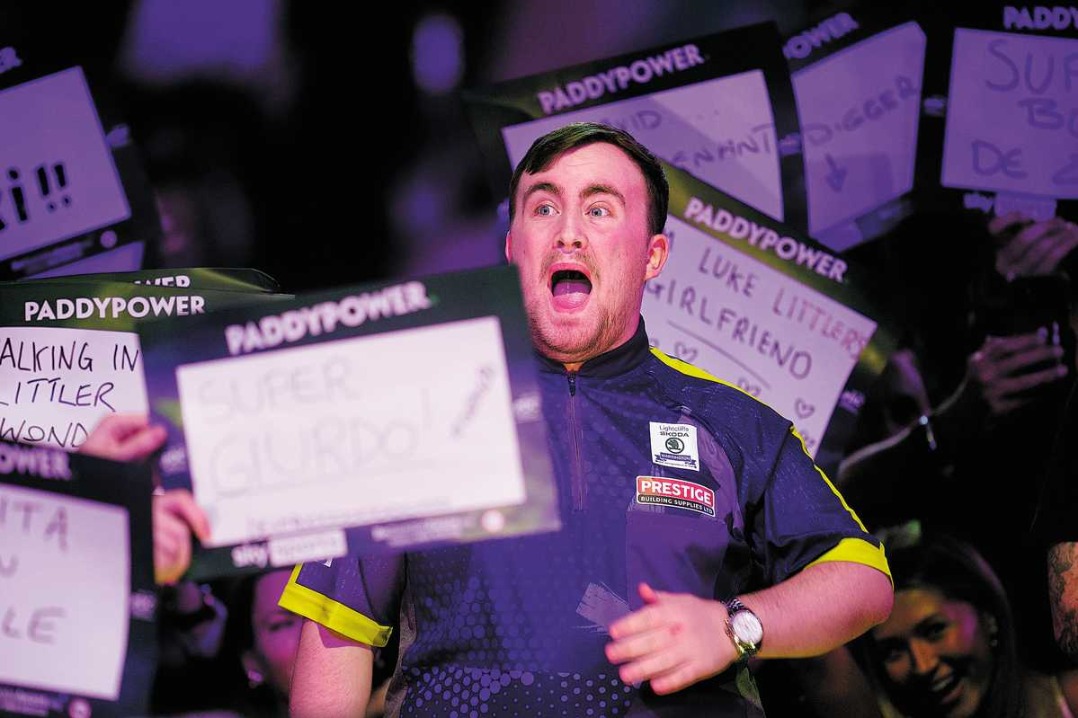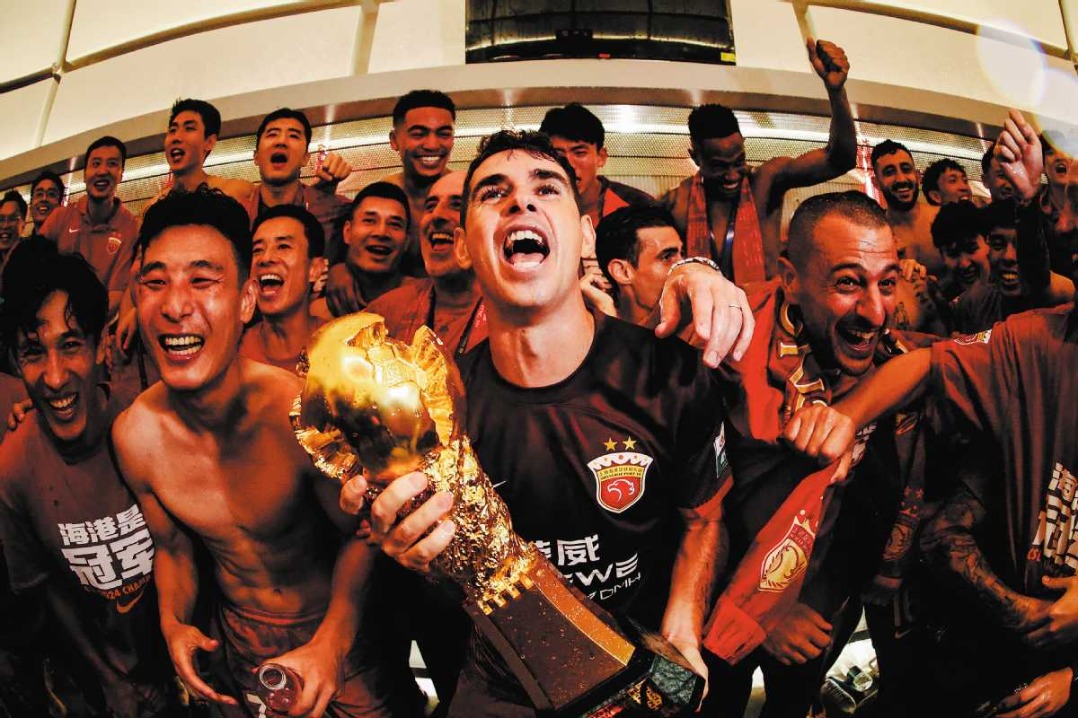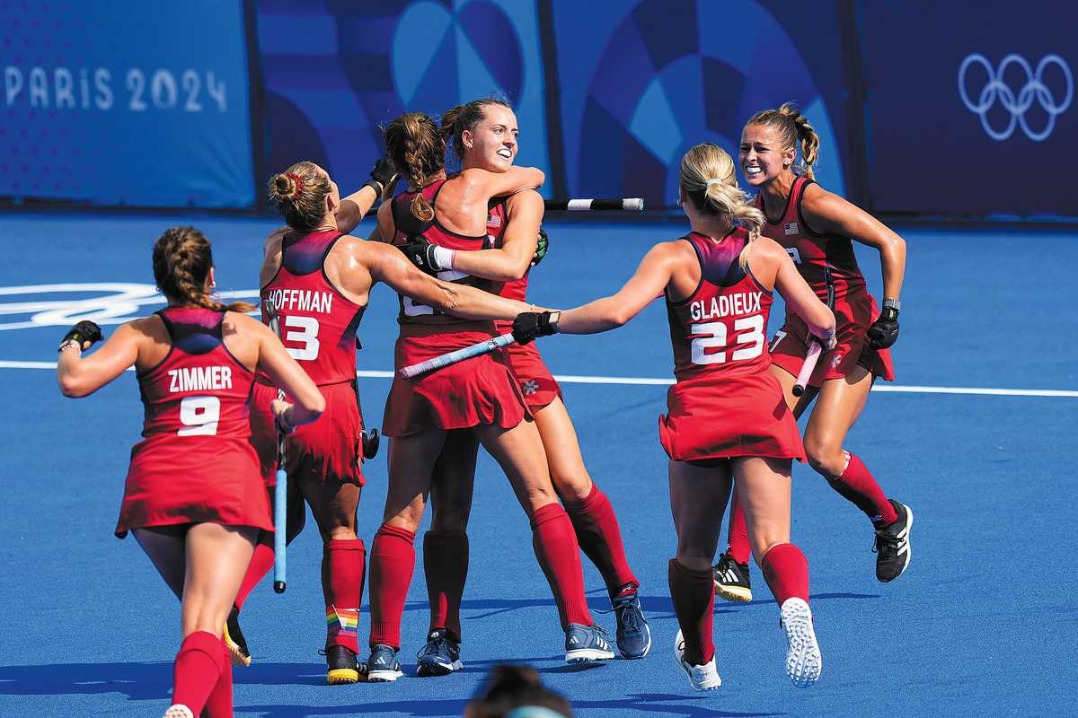Marathon runners make tracks for overseas events


Competitors set sights on the six majors
Wearing a black-and-white running shirt with a tiny Chinese flag on the left side, Li Lin, a 42-year-old Chinese runner, finished the New York City Marathon on Nov 3 in 4 hours and 31 minutes.
"The result was far from my PB (personal best) of 3 hours and 44 minutes," he said. "But considering a recent injury and lack of rest, I'm still excited about it. At least I finished the race and really enjoyed the whole process."
In the days after the event, Li walked around the city with his medal, taking photographs of landmark sites such as the Statue of the Liberty, the Empire State Building and Times Square.
It was the eighth time Li had competed in an overseas marathon. His first international race was in May 2016 in Vancouver, Canada.
"After running three to four half marathons and several slow, long-distance training sessions, I felt I was well prepared for a full one," he said.
To make his first marathon truly memorable, Li decided run it overseas and wanted to take part in an event that had both a good reputation and beautiful scenery.
After finishing the race, he said he felt "renewed and fulfilled" and had discovered a new way to explore the world by competing in international marathons.
Li, who works in the construction and real estate industry in Jinan, Shandong province, has since twice run marathons in Kyoto, Japan; and has also competed such races in Chicago, Tokyo, Berlin, Washington, and most recently, New York.
The annual New York City Marathon has been staged for 49 years, and continues to attract runners from around the world, and in particular more participants from China.
Among the 53,000 finishers this year, there were 1,115 Chinese entrants — 736 from the Chinese mainland, 198 from Hong Kong and 181 from Taiwan. Last year, the corresponding figures were 636, 172 and 181.
The number of Chinese competitors taking part in other world-renowned marathons has also risen.
On Sept 29, the Berlin Marathon welcomed more than 2,300 Chinese entrants, a year-on-year rise of 200.
Some 500 Chinese competitors completed the event in Boston this year — the world's oldest annual marathon which has a strict qualifying standard — compared with 400 in 2018.
A total of 2,640 Chinese runners completed the Tokyo Marathon this year, a year-on-year rise of 207.
Cui Ying, manager of Zhixingheyi International Travel Service, said Chinese runners are increasingly interested in running the so-called six majors.
Officially known as the Abbott World Marathon Majors, this series of races comprises marathons in Tokyo, Boston, Berlin, New York London and Chicago.
Runners who complete all six events are awarded a Six Star Finisher Medal in addition to medals for taking part in each race.
In view of the growing demand from Chinese runners, Cui said her company, a professional marathon services provider, has been designing and promoting tour packages since 2017 to help its clients taking part in the six majors in the same year.
The company's package, which costs 199,999 yuan ($28,400), includes guaranteed entry to all six events, along with accommodations and other services.
Cui said the company sells several packages each year, though she did not provide any detailed figures. "There are many buyers," she added.
Gao Queran, an operations manager at Peking University Press, said he met lots of other Chinese runners when he ran shorter race in Thailand early this year. Gao, who has been running for more than five years and started to take part in marathons two years ago, has run two such events this year — in Bangkok and Hakodate, Japan.
"During the Bangkok race, I recognized many Chinese runners from the national flags they wore on their vests. It felt really great," he said.
Jiang Ze, general manager of event registration and travel itinerary booking platform 42trip, said many high-quality races are popular among Chinese runners, even events that are not as well-known as the majors.
For example, Jiang said races in Japan are always in demand, such as the Nagoya Women's Marathon, the Kyoto Marathon, Kobe Marathon and Osaka Marathon.
"The events in Japan focus more on optimizing the runners' experience," she said. "Moreover, Japan has a strong running culture. Runners can find a lot of trackside food and drink provided by spectators and there are always many people to cheer you along."
Her company currently offers 83 running and travel packages, with 19 percent of them in Japan, 18 percent in Europe and 12 percent in Southeast Asia.
Gao said he had a good experience in Hakodate, a coastal city on the southern tip of Hokkaido.
"There were only 4,000 runners each for the full and half marathons, but the services provided and the atmosphere were really impressive," he said. "It felt like as if the whole city had turned out to cheer for the runners."
Li, from the real estate industry, said many international events are closely linked with local culture and "can turn into a big party on race day".
"The local people will give you a lot of support and encouragement during the race. When you wear your medal and meet people, you receive any amount of congratulations," he said.
Li, who has already signed up for the Kyoto Marathon next year, said he also wants to take part in such an event in Europe or Australia during the National Day holiday in early October.
"Going abroad is not just about running a marathon, but to explore and experience the world as well," he said. "Moreover, as my 8-year-old daughter is growing up, I want to run with her."
Jiang, from 42trip, said her customers also enjoy taking part in the Prague Marathon in the Czech Republic, the Medoc Marathon in France, the Marine Corps Marathon in the United States, and other popular races.
"It is a way of life to explore a place in the form of a marathon," she said. "Running abroad is more like a theme tour. During the tour, running is one of the aspects that will deepen your memory of the whole trip."
Gao also said he bases his travel plans on marathons.
"I don't think I'm suited to traditional travel. It will be boring if I just look at the scenery and simply take photos," he said. "But exploring a place by running can be so different.
"A city is well-prepared for the runners on race day, and you will probably see some places during the race that you would not visit as a tourist."
Gao, who is preparing for an event in Angkor Wat, Cambodia, in January, said, "I'm more into races that are closer to home so that I can avoid long-distance travel and jet leg, and such events are much more affordable."
But even through Gao caught a cold before leaving for Japan, he still decided to run the race. "Everything had been booked. It would be quite a lot to give up. This is one of the downsides of running overseas," he said.
Li said adjusting to jet leg and dealing with unfamiliar local food are two of the biggest challenges he faces when running overseas.
"I usually spend several days before a race having a good rest," he said. "As for the food, I bring instant noodles and canned meat from China for my dinner the day before the race."
Agencies such as 42trip help less-experienced runners prepare for overseas events.
From assistance with visa applications to developing training plans, Jiang said her company provides a range of services for traveling and running abroad.
"We organize running activities days before a race to help athletes adjust and familiarize themselves with the local environment. We provide professional tips, such as how and what to eat before and after the race, the kind of running shoes they should wear, and how to warm up and stretch. We also prepare travel guides and help them book tickets," she said.
Concerns emerge
Both Gao and Li said it can sometimes be difficult to handle less-experienced runners.
"Some of them will raise flags or banners during a race. This can have a really negative impact on other competitors, but they don't care. And there is even worse behavior, such as showing no respect to volunteers, or jostling for position and ignoring race procedure to get a better result, thus ignoring other competitors' safety," Li said.
Gao said he once saw some Chinese competitors running side by side, blocking the track.
Meanwhile, the desire to take part in the World Marathon Majors has driven some competitors to take risks.
According to media reports, three Chinese marathon runners were accused of cheating in this year's Boston Marathon. Two athletes admitted submitting fake documents to gain entry, while one hired a "bib mule" — another runner who uses the participant's personal information to run the race.
Days later, the Chinese Athletic Association said it had banned the three from running competitive road races in China for life.
Li, the 42-year-old who finished the New York Marathon, said it his ambition to run the six majors, but rather than breaking any regulations, he wants to rely on his ability and luck, even it takes several years to achieve his goal.
"I already have a training plan to help me meet the qualification standard for Boston," he said.
Jiang, from 42trip, called on runners to "rethink their initial motivation for running a marathon" as she has noticed a "chain of contempt", or a "hierarchy" in which some experienced runners look down on slower ones.
"Running is something everyone can do. It's not just for competition or achieving a faster time. You can run at whatever pace you like," she said. "Fast runners can encourage people who run slowly, and slower runners can enjoy the scenery along the track. There is no right or wrong about this."
Most Popular
- Chinese table tennis stars Fan and Chen quit world rankings
- Embiid stands tall against Celtics, despite pregame fall
- Wemby scores 42 in a memorable Xmas debut, but Spurs fall short
- Mahomes throws 3 TDs as Chiefs clinch top seed
- Littler is a big deal
- Thohir determined to take Indonesia back to World Cup































